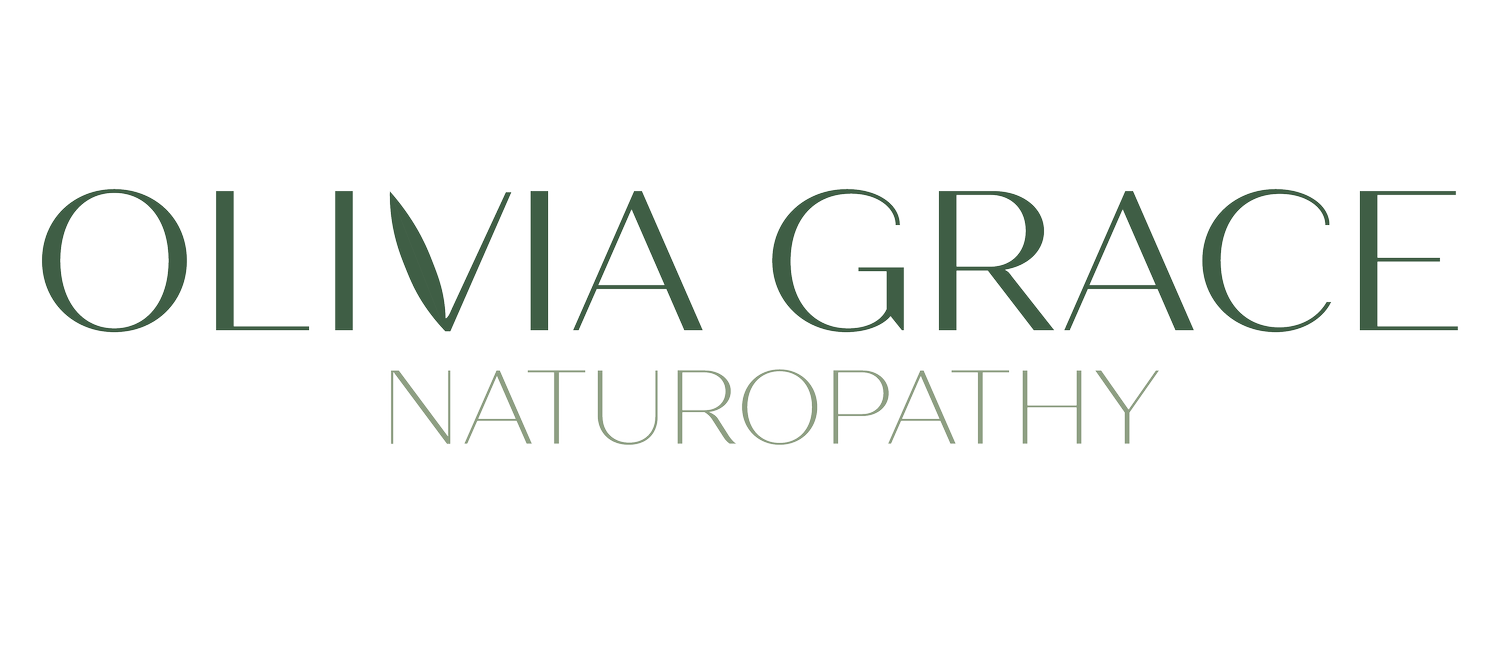How to Naturally Boost Melatonin Production for Better Sleep and Mood
TL;DR
Your body knows how to make melatonin naturally through the tryptophan → serotonin → melatonin pathway. Nutrition, gut health, and lifestyle all influence this process. To support it:
Get morning sunlight and limit blue light at night (outdoor sun exposure helps offset screen time effects).
Eat protein-rich foods (eggs, turkey, tofu) to supply tryptophan.
Support your gut microbiome with fibre and diverse plant foods.
Ensure you’re getting cofactors like B6, B3, folate, iron, magnesium, zinc, and vitamin C from whole foods.
Prioritise stress management, consistent sleep routines, and regular movement
Food comes first — supplements may help in some cases, but always seek professional advice before using them.
The Tryptophan–Serotonin–Melatonin Pathway
Melatonin doesn’t appear in the body on its own. It’s the end product of a biochemical pathway that starts with tryptophan, an essential amino acid found in protein-rich foods.
Tryptophan → converted to 5-HTP
5-HTP → converted to serotonin (your “happy” neurotransmitter)
Serotonin → converted to melatonin in the pineal gland
For this pathway to function optimally, your body needs:
Adequate tryptophan intake from diet
A healthy gut microbiome
Specific nutrient cofactors at each enzymatic step
The Role of Light in Melatonin Production
Melatonin release follows your circadian rhythm. Exposure to natural light in the morning helps regulate the body clock, while blue light exposure in the evening (from screens and artificial lighting) can suppress melatonin production.
Morning sunlight: boosts serotonin and sets up melatonin release at night
Blue light at night: delays melatonin and disrupts sleep onset
Sunlight as mitigation: outdoor sunlight during the day helps counteract some of the negative effects of screen time. This is why you often sleep better after a day outside (sun safety is important too).
Practical tip: Limit blue light before bed and offset daily screen exposure with outdoor time — even a short lunchtime walk makes a difference.
Nutrients That Support Melatonin Production
Each step of the pathway requires cofactors. Without them, the process slows down. Key nutrients for converting tryptophan into serotonin include:
Vitamin B6
Vitamin B3
Folate (B9)
Iron
Magnesium
Zinc
Vitamin C
Food Sources to Focus On
Tryptophan: turkey, chicken, eggs, tofu, pumpkin seeds, sunflower seeds, oats
B vitamins: leafy greens, legumes, whole grains, poultry, eggs
Iron: lean red meat, lentils, spinach/leafy greens (pair with vitamin C foods for absorption)
Magnesium: nuts, seeds, legumes, dark chocolate, leafy greens
Zinc: lamb, beef, almonds, beans, pumpkin seeds, cashews, chickpeas, oysters
Vitamin C: citrus fruits, kiwifruit, capsicum, strawberries
Gut Health and Neurotransmitters
Around 90% of serotonin is produced in the gut. A diverse, balanced microbiome supports neurotransmitter production and, in turn, influences mood and sleep. Fibre, plant diversity, and fermented foods all help.
Lifestyle Factors for Healthy Sleep
Consistent sleep–wake routine
Stress management (breathwork, yoga, meditation, hypnotherapy)
Regular exercise (supports circadian rhythm and mood)
Why Professional Guidance Matters
Supplements or high-dose vitamins aren’t right for everyone. Genetics (SNPs), digestive capacity, medications, and nutrient status all influence safety and effectiveness.
That’s why I recommend a food-first approach as the foundation, with professional guidance if supplementation is needed.
Final Thoughts
Your body is designed to make melatonin naturally but it needs the right building blocks and environment. With nutrition, sunlight, gut health, and supportive lifestyle practices, you can optimise this pathway and support better sleep, mood, and resilience.
✨ If you’re ready for a personalised plan to improve sleep and wellbeing, book a Holistic Health Consult (online or in Wagga). Together, we’ll decode your symptoms and create a strategy tailored to you.
Let’s connect
Follow me on Instagram | Facebook | LinkedIn for health tips, case studies, and exclusive insights.
Looking for more?
Explore more on my website here: https://www.oliviagracenaturopathy.com.au
📍 In-person and online consultations available
📧 info@oliviagracenaturopathy.com.au
📱 DM me on Instagram or Facebook @oliviagracenaturopathy
Disclaimer: This article is for educational purposes only and does not replace personalised medical advice. Always consult a qualified health professional before starting supplements or making significant health changes.

